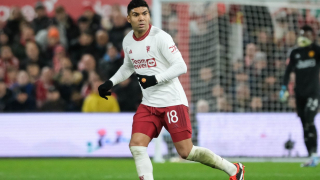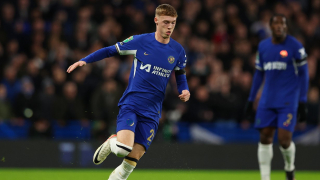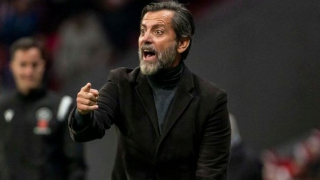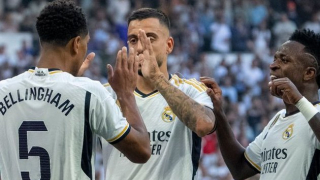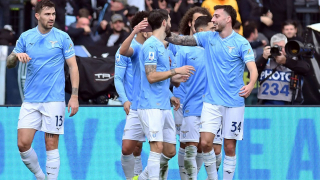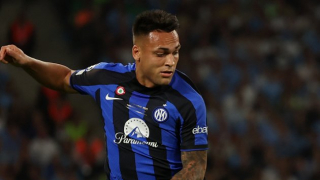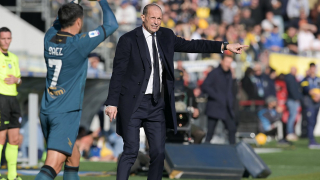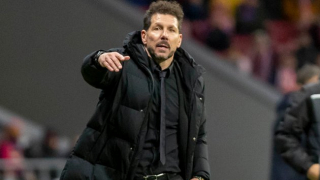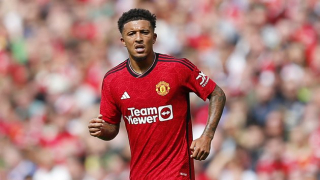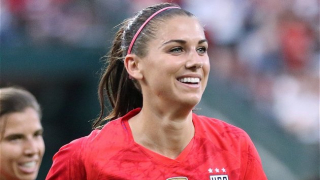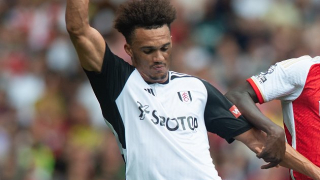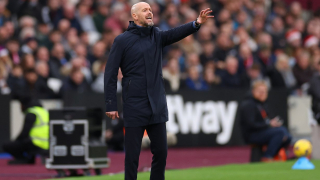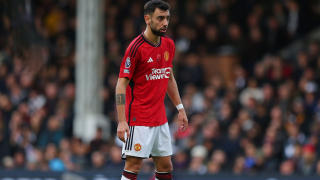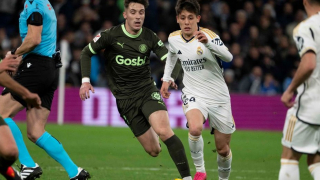EDITORIAL: It's coming. You can put your house on it. It's as predictable as Steven Gerrard being played anywhere but in the middle for England.
Its international week and the calls for foreign quotas in the Premiership will again be front and centre. Both ex- and current managers will claim the English talent pool is too small, there's too many foreigners in the Premiership and quotas must be introduced to save the national team.
And on the opposing side, there'll be some who'll just shrug and say you cannot have a strong Premiership and a strong England team.
Both arguments are wrong.
Producing better English talent isn't going to come from a band aid solution like foreign quotas. The success of the national team isn't going to happen through a top-down approach - and it's also not good enough to argue about a vague grassroots response. There hasn't been enough debate in the media about the current academy system and why Premiership clubs are being forced outside the country to boost their youth ranks.
Why are clubs like Liverpool being forced to go through foreign talent like Antonio Barragan (Spain) and Gabriel Paletta (Argentina), while having to shell out big for a local lad such as Jack Hobbs, the former Lincoln City trainee?
Rafa Benitez knows he has a better chance of producing first teamers going the Hobbs route rather than gambling on a young foreigner, who may never settle on Merseyside. But the likes of Barragan and Paletta cost Liverpool peanuts, while Lincoln collected £750,000 for Hobbs. How can we blame Premiership clubs for going foreign when it is so costly and problematic to bring in the best local youth?
Where would Hobbs be now in his development if Liverpool had been allowed to sign him as a 12 or 14 year-old? Playing and training alongside some of the best talent in the world, working at one of the top academies in the country - shouldn't this be the goal of the game's authorities to accelerate the development of England's most talented?
Instead, we have these bureaucratic laws which demand academies only register U12-U16 players within one-and-a-half hours travel time. In this ruling's time frame, we've seen the Premiership produce some of the best academies in the game - and with it some of the world's brightest new talent. But none of it is English.
There's some great work being done by clubs outside the Premiership and they deserve to be compensated. But getting the best local kids to the best resourced academies in the country needs to be priority for the game's powerbrokers.
The PFA should get involved. And not by producing scathing 'white papers'. An idea could be Premiership players reaching a certain wage level giving back a set sum to either the club that produced them or to an overall development fund to be distributed to Football League academies. In five years' time, Premiership regular Hobbs could cover the traineeship costs of a talented kid at Lincoln City - giving back to the system which helped him on his way.
It's not all doom and gloom. As Ashley Young and Steven Taylor proved at last year's U21 European Championships, there is talent coming through - but this is despite the current academy system, not because of it.
There's gems out there, Everton fans have had a chance to see Jose Baxter and Jack Rodwell in preseason and Jack Wilshire looks the business at Arsenal. But if the trickle is to become a flood, the FA must be prepared to make it easier for Premiership clubs to identify and sign the nation's best youngsters.
Gambling the Premiership's global standing with threats of foreign quotas is not the answer.
Why has Kaz Patafta been left behind?![]()
EDITORIAL: Three years ago Kaz Patafta, the Australian midfielder, was regarded as among the best of his generation.
It was 2005, the U17 World Champs in Peru had concluded and Patafta was being celebrated alongside the brilliant Mexican pair Giovani dos Santos and Carlos Vela as the best of his generation. Anderson, now of Manchester United, was also in the gang of four which had European clubs scrambling.
Only weeks after the championships, Brazilian Anderson won a move to Porto, Vela was snapped up by Arsenal, Giovani was promoted to Barcelona's senior squad and Patafta, after delays caused by an over-stringent Football Federation Australia, accepted an offer from Benfica.
But while his peers are now household names, three years on it just hasn't happened for Patafta. He is back in Australia - and has already moved within the A-League from Melbourne Victory to the Newcastle Jets.
In 2005, the pundits were right. Graham Arnold was right! Patafta had the lot, great quality on the ball, a good passing range and an ability to drive and lead teammates against class opposition. His potential won him a place - on Arnold's recommendation - in Guus Hiddink's train-on squad for the 2006 World Cup and had the media rightly declaring him as the next big thing.
So what happened? The Special Ones in the local media blame Australia's coaching system and way of playing. It's too physical ... too British. His former coach at Melbourne Victory, Ernie Merrick, admitted Patafta needed to spend more time in the gym, adding kilos to his frame - and for that he was castigated by the ex-players' brigade.
Less than a year ago, Patafta seemed to buy into this thinking, telling Michael Lynch of The Age: "I think people underestimate my strengths. Sometimes people always look for a player's downside. Maybe that's something I don't possess as much as the player next to me. But I think that's something people tend to focus more on here in Australia than, say, they would in Europe.
"I was never told over there that I was too small or that I wasn't strong enough. Over there people would say he has got good skill, he's sharp, and they focus on those things."
Nice talk, but in the meantime the young lads he stood shoulder-to-shoulder with in Peru were all focusing on the physical side of their game.
By rights, Patafta should be well ahead of Anderson in their respective development. The Brazilian was forced out of the game for almost half-a-year after breaking his leg just months into his Porto career. At the end of that 2006/07 season, Anderson was signing with Manchester United and the last meaningful piece of work the acclaimed fitness coach Valter di Salvo did before he left for Real Madrid was draw up a weights program for the Brazilian to follow - just as he previously had for Cristiano Ronaldo.
Patafta is a great admirer of Ronaldo, but I wonder if it has been relayed to him how the Portuguese would be rapped over the knuckles at Sporting Lisbon for keeping his teammates awake as he worked out at the in-house gym in the early hours of the morning? Even as a 14 year-old, Ronaldo knew if he wanted to produce his best on the pitch, he had to physically compete to earn the right.
Giovani, because of his body shape, has a different problem. Barcelona put the Mexican on a strict, specialised diet to help keep his weight down, while also introducing him to a weights program in December. This has been carried on by Tottenham's fitness coach Marcos Alvarez and dietician Antonia Escribano. There's been no complaints from Giovani or his minders and the rewards have been a fantastic preseason in England and no great doubts that Juande Ramos was spent wisely by bringing the Mexican to London.
And it would have been so easy for Carlos Vela to have thrown a strop and return to Mexico after signing for Arsenal three years ago. It's only this season that he has managed to join the Gunners, spending the past three on-loan in Spain as he waited for his UK work permit. In that time, Vela, in partnership with Arsenal staff, committed himself to learning English in preparation for his move to London. Regarded in Mexico and the USA's Latin population as a bigger star than Giovani, Vela could have settled for a comfortable - and lucrative - life in Guadalajara. But he wants more and is willing to make sacrifices to meet his ambitions.
Patafta is now playing catch-up. At 19, he is still young enough to match the expectations that emerged after Peru. But how much does he really want it?
He can allow himself to be indulged by Australia's soccer elite and become their poster boy for all they believe is wrong with the local game. Or he can buck up, start listening to people who actually have a record of success in developing international class players and take a closer look at why in little over three years he's allowed himself to be left behind.
If he wants it, there's a lot of hard work ahead. But Patafta is young enough and good enough to get his career back on track.


